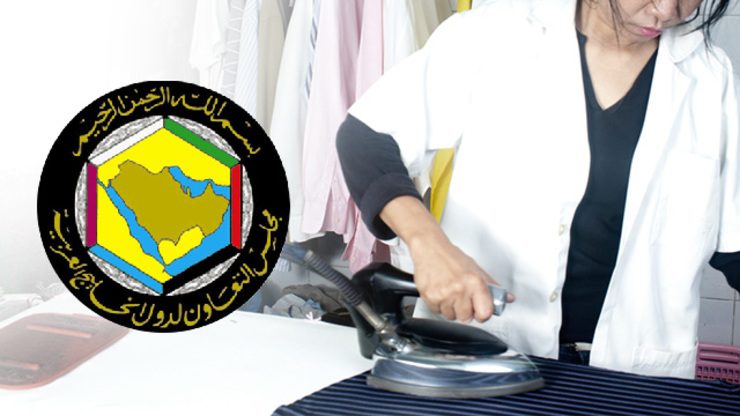SUMMARY
This is AI generated summarization, which may have errors. For context, always refer to the full article.

MANILA, Philippines – Labor Secretary Rosalinda Baldoz is hopeful that a new template contract for migrant domestic workers that sets basic labor standards in the Gulf region will “end soon the days of abuse and exploitation” they suffer.
Baldoz welcomed the move of the 6-member Gulf Cooperation Council (GCC) on Thursday, November 27, saying the standardized contract has “far-reaching, positive implications.”
The new contract now stipulates a weekly day-off, annual leave, the right to live outside an employer’s house, an 8-hour workday limit, end-of-work indemnity, overtime pay for a daily maximum of two hours, and a ban on passport confiscation for foreign domestic workers.
The labor chief was with the Philippine contingent in Kuwait during the two-day Abu Dhabi Dialogue (ADD) 3rd Ministerial Meeting that ended Thursday.
“This is a boost to our efforts to ensure increased protection for the well-being, safety, and welfare for our Filipino domestic workers,” said Baldoz, ADD chair for the past two years.
There are around 2.4 million registered temporary Filipino workers in the Gulf region, and another 300,000 who are either permanent residents or undocumented immigrants.
No substitute for labor law
Baldoz pressed on the imposition of penalties on “uncaring recruiters, opportunistic middlemen, and abusive employers” who mistreat Filipino household workers. Such penalties, she said, should include a ban on employing foreign workers.
READ RELATED ARTICLES:
The new contract adopted by the GCC still fails to address key labor rights issues faced by migrant house helpers across the region, said Rothna Begum of New York-based Human Rights Watch (HRW).
“A contract is no substitute for labor law protections. GCC states either partially or completely exclude domestic workers from their labor laws,” Begum told Rappler.
Kuwait’s Public Manpower Authority Director General Jamal al-Dossari, however, had told Agence France-Presse that some countries in the region already “have laws that are better for workers” than the contract approved by the Gulf ministers.
Still, Begum said GCC nations must also reform its visa sponsorship system known as kafala which prevent migrant domestic workers from changing employers at will.
The creation of a labor inspection task force and the abolition of the kafala system are “necessary measures,” she said, “without which such contracts will do little to protect domestic workers from abuse.”
The kafala system ties a migrant worker’s visa status or work permit to his or her employer, enabling the employer to gain inordinate control over the foreign worker.
This, Begum said, traps workers and deters them from making complaints.
“If they do leave, they are punished with ‘absconding’ charges and liable to deportation, potential fines and even re-entry bans,” added Begum.
She acknowledged, however, that the contract is a significant improvement from present labor conditions for migrant domestic workers in the Gulf.
“This new move shows that the GCC is willing to show that it can take steps towards migrant workers’ protection,” she said.
Begum maintained that strong pressure from non-governmental organizations and trade unions for worker’s rights must remain, as “a contract is not enough to fully protect domestic workers.” – with a report from Agence France-Presse/Rappler.com
Woman ironing clothes image via ShutterStock.
Add a comment
How does this make you feel?
There are no comments yet. Add your comment to start the conversation.